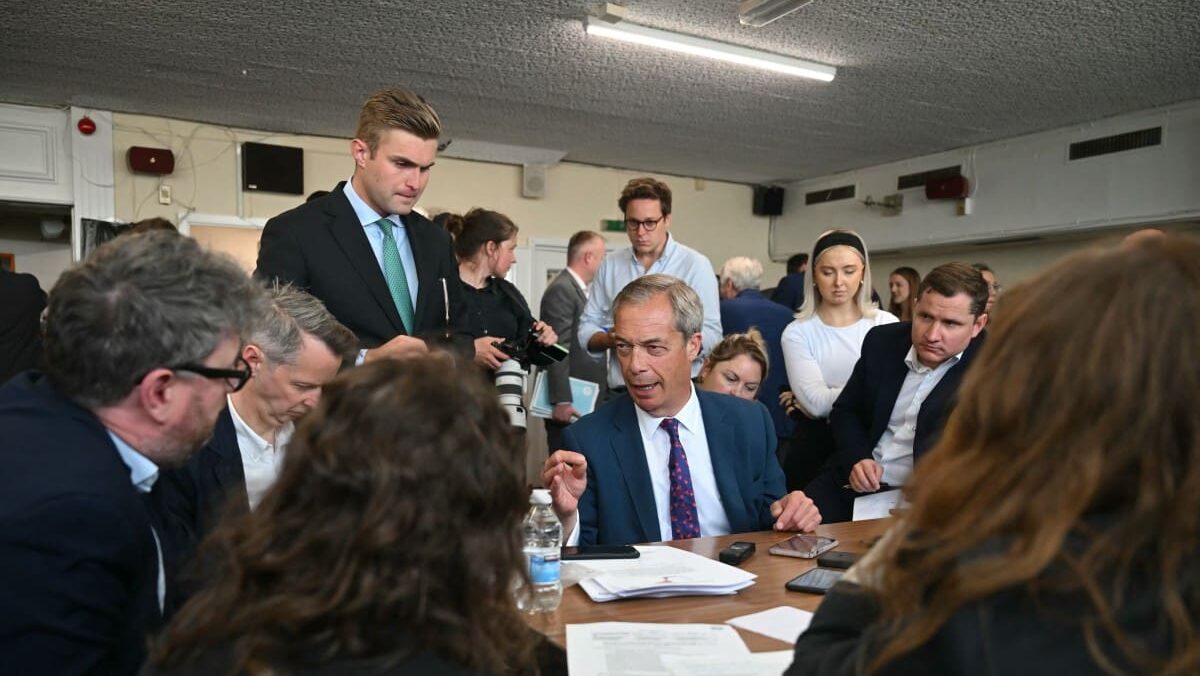
Photo: JUSTIN TALLIS / AFP
Just over a fortnight ago, when Nigel Farage announced he was taking over as Reform UK leader and standing for election in Clacton, Reform was expected to win zero seats on July 4th. Pollsters now predict he’s not only going to win the Essex seat but will do so with the biggest swing in modern electoral history.
Separate polling also suggests that Lee Anderson—who defected from the Conservatives to Reform in March, saying that neither Labour nor the Tories “seem to understand what British people want”—will retain his Ashfield seat with an extraordinary 59% of the vote (compared to Labour’s 21% and just eight percent for the Tories).
A win for Anderson would entail “a sensational margin of victory,” according to former UKIP MEP Patrick O’Flynn. Now a well-connected political journalist, O’Flynn added that Anderson’s forecasted win would make Anderson “the only person to have won a [culturally conservative, historically Labour-backing] red wall seat for the Tories [under then-prime minister Boris Johnson] in 2019 to be re-elected to Parliament in 2024.”
In Clacton, Survation polling commissioned by self-styled “bad boy of Brexit” Arron Banks suggests that Farage will win 42% of the vote, putting him well ahead of both the Conservatives (27%) and Labour (24%).
Farage noted yesterday, on June 18th, that “last week the Tory party said Reform would get zero seats. Now [prime minister Rishi] Sunak says we will only get two–three.”
I think he could be in for a big surprise…
Recent polling even suggests that Reform UK’s successes will extend beyond Farage and Anderson. The party could win seven seats at the general election, according to Survation, including in North West Norfolk and Great Yarmouth—both currently held by the Tories.
This polling could, of course, be wrong. Or it could be right at this moment, though voters could later decide that the dangers of Labour’s radical agenda warrant a vote against Sir Keir Starmer anyway—even if that means voting Conservative. Previous UK elections have noted the trend of ‘punishing polling,’ where respondents mislead about their voting intentions so as to menace incumbents—whom they may later vote for.
But if millions do vote for Reform and the party picks up very few (or zero) seats, this will only bolster Farage’s message that the whole political system—including the way elections are held—needs to be reformed. It appears that it certainly wouldn’t stop Farage from working towards much larger gains in the next (likely 2029) general election, which he claims was the plan from the outset.
